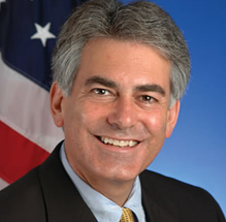
Victims of workplace harassment and discrimination deserve justice
For far too long, New Yorkers who experienced discrimination and sexual harassment at work had little or no recourse. Many simply never reported the harassment for fear of being labeled a “problem” or fear of retaliation by the perpetrator or their employer. This type of abuse can cause lasting trauma and ruin careers, and the threat of losing economic independence effectively silenced countless victims.
To better combat these societal scourges, the Assembly formed a workgroup to develop recommendations and new legislation. The Legislature also held joint hearings earlier this year to examine cases of harassment and workplace discrimination. We heard from victims themselves about the horrors they experienced and their lack of support through these terrible incidents. Their experiences were used as a guideline for creating new legislation.
Perpetrators of workplace harassment and discrimination should be held responsible for their actions, but this wasn’t always the case. Under previous law, the harassment had to be “severe or pervasive” to be legally actionable. But a law I helped pass that went into effect this month eliminates this unfair standard and defines harassment as an unlawful discriminatory practice when it subjects an individual to inferior terms, conditions or privileges of employment due to age, race, creed, color, national origin, disability, sex, sexual orientation, gender identity or expression. The law now also protects from discrimination due to military status, predisposing genetic characteristics, familial status, marital status, domestic violence status or because an individual filed a complaint (Ch. 160 of 2019). Now victims of these despicable acts are better able to seek the justice they deserve.
Furthermore, the law applies to all employers across New York, extending protections to non-employees such as contractors, vendors, consultants and domestic workers. It also prohibits mandatory arbitration clauses and non-disparagement provisions in employment contracts to empower victims and ensure their voices aren’t silenced by unfair contracts. Last year’s state budget also established a model policy and model training program to change our work culture from the inside-out and prevent these despicable acts from happening in the first place.
Sexual harassment and discrimination have no place in New York State, and I’ll always fight to ensure New Yorkers feel safe and secure, whether at home, at school or in the workplace. And I’ll continue to stand with victims because no one should have to face bigotry and harassment on their own.
If you have questions about this or any other community issue, don’t hesitate to contact my office at 315.452.1115 or StirpeA@nyassembly.gov.
Stirpe hosts seminar on new rights for survivors of childhood sexual abuse
Assemblyman Al Stirpe (D-Cicero) held a seminar on Thursday, Oct. 24, to inform residents about the new opportunities available for survivors of childhood sexual abuse to seek justice under the Child Victims Act. The event, called “Courageous Conversations, Critical Choices: What New York’s Child Victims Act Means for Syracuse,” was held in partnership with the Zero Abuse Project.
“Abuse of any kind against a child is sickening and unforgivable, and survivors of this heinous crime often carry this trauma with them for the rest of their lives,” Stirpe said. “While we unfortunately can’t erase the past, we can ensure every survivor is heard when they’re ready to tell their story and empower them to confront their abusers on their own terms. By starting the conversation and making sure residents are aware of the new rights under the Child Victims Act, we can help more victims of childhood sexual abuse get the justice they deserve and begin healing.”
Stirpe helped pass the Child Victims Act earlier this year to allow more victims of childhood sexual abuse to face their abusers in a court of law (Ch. 11 of 2019). The law, which is now in effect, extends the civil and criminal statutes of limitations, as well as institutes a one-year “look-back window” during which past victims can seek justice in court.
The seminar was led by child welfare advocates, clinicians and sexual abuse prevention experts and provided information to residents about the new rights survivors of childhood sexual abuse have under the Child Victims Act. Stirpe co-hosted the event with the Zero Abuse Project, a nonprofit dedicated to stopping childhood sexual abuse and providing support to survivors and their families. Although these conversations can be difficult, they’re absolutely vital and show survivors that we stand with them and will support them every step of the way, noted Stirpe.
